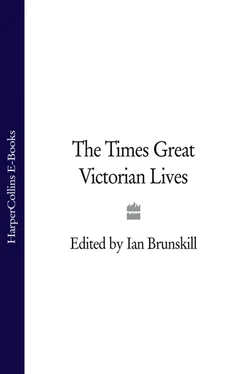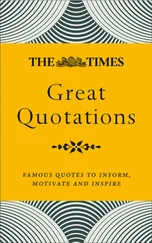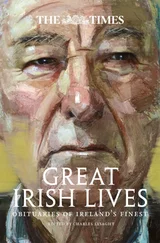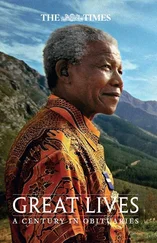The Times Great Victorian Lives
An Erain Obituaries
GENERAL EDITOR: IAN BRUNSKILL EDITED BY PROFESSOR ANDREW SANDERS
Cover Page
Title Page The Times Great Victorian Lives An Erain Obituaries GENERAL EDITOR: IAN BRUNSKILL EDITED BY PROFESSOR ANDREW SANDERS
Introduction
Thomas Arnold
Felix Mendelssohn
George Stephenson
William Wordsworth
Sir Robert Peel
J. M. W. Turner, R. A.
Isambard Kingdom Brunel
Robert Stephenson
William Makepeace Thackeray
Nicholas, Cardinal Wiseman
Abraham Lincoln
Lord Palmerston
Michael Faraday
Charles Dickens
General Robert E. Lee
Charles Babbage, F. R. S.
Emperor Napoleon Iii
William Charles Macready
David Livingstone
John Stuart Mill
Sir Edwin Landseer
Harriet Martineau
Sir Titus Salt
William Henry Fox Talbot
Pope Pius Ix
George Gilbert Scott
John Thadeus Delane
George Eliot
Thomas Carlyle
Benjamin Disraeli, First Earl Of Beaconsfield
Dante Gabriel Rossetti
Charles Darwin
Anthony Trollope
Richard Wagner
Karl Marx
Victor Hugo
Sir Moses Montefiore
Franz Liszt
Matthew Arnold
George Charles Bingham, 3rd Earl Of Lucan
Wilkie Collins
Robert Browning
John Henry Newman
Charles Bradlaugh
Charles Stewart Parnell
Thomas Cook
Alfred Lord Tennyson
Louis (lajos) Kossuth
Robert Louis Stevenson
Christina Rossetti
T. H. Huxley
Friedrich Engels
Louis Pasteur
Lord Leighton
Clara Schumann
Sir John Everett Millais
William Morris
Johannes Brahms
Charles Lutwidge Dodgson (lewis Carroll)
William Ewart Gladstone
Sir Edward Burne-jones
Otto Von Bismarck
Helen Faucit
Henry Tate
John Ruskin
Sir Arthur Sullivan
Oscar Wilde
Dr Barnardo
Sir Henry Irving
Josephine Butler
Lord Kelvin
Florence Nightingale
Count Leo Tolstoy
W. S. Gilbert
Octavia Hill
W. G. Grace
Elizabeth Garrett Anderson
Sarah Bernhardt
Index
Copyright
About the Publisher
INTRODUCTION
Ian Brunskill
Obituaries Editor of The Times
By the middle of the 19th century, when the obituaries collected here began to appear, The Times was well on the way to becoming a British institution, secure in its values, confident of its position and proud of the influence it exercised in the world. That confidence and influence had been hard won. The London press, when The Times was founded (as the Daily Universal Register) in 1785, was notable as much for its venality as for anything else. In the rough and tumble of political life, newspapers and journals were there to fight a corner or settle a score. Precisely which corner or score was not always important, if the price was right.
The Times had dragged itself on to higher ground. Thomas Barnes, Editor from 1817 to his death in 1841, began to build the paper into a significant independent force in British politics. His successor, John Thadeus Delane, whose obituary is reprinted here, consolidated the work; at the height of his 36-year editorship, the paper’s prestige was considerable, its power much feared – and its support could not be bought.
In 1854 Delane gave a ringing summation of the paper’s understanding of its role. Attacked in Parliament by the Leader of the Opposition, he replied the next morning in a leading article: ‘We hold ourselves responsible, not to Lord Derby or the House of Lords, but to the people of England, for the accuracy and fitness of that which we think proper to publish…This journal never was, and we trust never will be, the journal of any Minister, and we place our own independence far above the highest marks of confidence that could be given us by any servant of the Crown.’
That defiant firmness of judgement and independence of thought lent significant weight to the paper’s obituary coverage. In an area where the risks of personal bias and parti-pris are great, Delane saw that The Times’s unique authority gave it a valuable advantage over less high-minded rivals. He determined to make the most of it, expanding the paper’s reporting of important deaths to the point where obituaries became an essential and enduring element of The Times’s editorial core. Other papers’ efforts came nowhere near.
Delane was aware that he lived in an age both fascinated by historical greatness and well stocked with remarkable personalities of its own. He saw that the demiseof a prominent national figure would capture the public imagination as nothing else could. It was worth covering in depth and, if necessary, at considerable length. The death of the Duke of Wellington, he told his deputy, ‘will be the only topic’.
Readers seemed to agree. Wellington’s obituary, all 47,000 words of it, dominated The Times over two days in September 1852; such was the demand that it was republished as a pamphlet for separate sale. Similarly, in 1865, when the paper’s circulation stood at 65,000, the publication of Palmerston’s obituary on 18 October added more than 11,000 copies to the daily sale.
In its early days, the paper’s approach to obituary coverage had been haphazard. Notable deaths had been recorded, from the French Revolution onwards, but there was no great consistency of quality or tone. If The Times found itself without an obituary of an important person who had died, it was not above plagiarism, or simply reprinting a notice from another publication (as it did with the life of General Lee, included here). All this changed under Delane. There was no attempt to be comprehensive, and nothing like the daily obituary column of modern times, but Delane made sure that The Times would rise to the big occasion in matchless style.
In doing so, he was able to call on the remarkable editorial team that he and his predecessor had assembled. Some of these ‘Men of The Times’ were to be found each night at ‘the office’ in Printing House Square, writing leading articles and editing reports; some wrote to order from Oxford and Cambridge colleges and country rectories; some were critics whose engagement showed the paper’s commitment to serious coverage of music, literature, theatre and the visual arts; some were diplomatic specialists, at home in Europe’s embassies; some were foreign correspondents in the field. Together with the Editor’s own contacts in the corridors of power, and those of the Walter family, hereditary ‘chief proprietors’ of The Times, they made up a formidable intelligence network, and among them were some formidable minds.
A leading role in the paper’s obituary coverage was for many years taken by Charles Dod, founder of Dod’s Parliamentary Companion and, as head of the Times gallery staff at Westminster, responsible for setting new standards in the reporting of parliamentary debates. After Dod’s death in 1855, much work on obituaries was done by the versatile Scottish man of letters Eneas Dallas; one of the paper’s most prolific book reviewers and author of a well-regarded study of poetry, The Gay Science, Dallas also volunteered to report from inside Paris when the French capital was under siege. Among the many obituary notices in which Dallas’s was the sole or principal hand were those of Dickens, Palmerston, the Austrian Chancellor Prince Metternich, Thackeray, the historian and politician Thomas Babington Macaulay, and Albert, the Prince Consort.
Читать дальше












